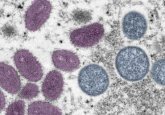T-cell receptors: not as perfect as they seem?

It is a commonly held belief that T-cell receptors are nearly perfect at distinguishing who is the enemy; however, new research from the University of Oxford (UK) has overturned this dogma. T cells determine who is friend or foe through how tightly the T-cell receptor can bind to antigens on those cells, binding poorly to antigens on ‘normal’ cells and tightly to those on the enemy. Yet, recent clinical studies of autoimmune diseases have challenged the perceived perfection of the T-cell method, given they have been seen to attack ‘normal’ cells if they happen to express a large number of our own antigens – regardless of the strength of binding to each individual antigen. ...
To view this content, please register now for access
Join our member community for FREE to access a collection of journal and online-only features, including:
- Exclusive access to educational videos, eBooks and insights into top BioTechniques journal articles
- The latest news and journal updates delivered straight to your inbox when you want it
- Personalized recommendations for the latest member-exclusive podcasts, interviews and expert opinions
- Priority registration to webinars, panel discussions and events
- Access to competitions and journal publication discounts, including 10% off open access fees when you sign up today!





